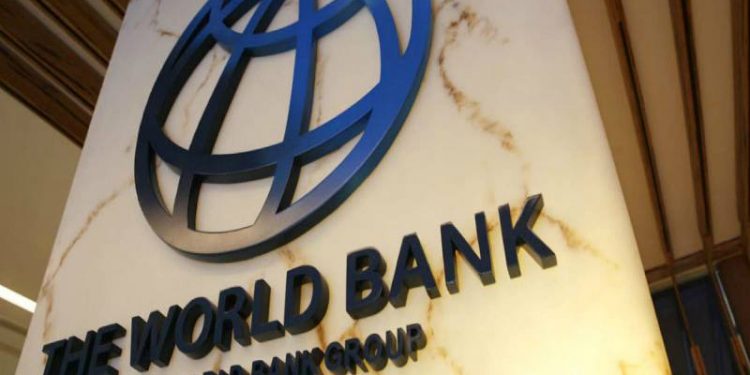Global wealth has grown, but at the expense of future Prosperity – World Bank says
Global wealth has grown overall—but at the expense of future prosperity and by exacerbating inequalities, according to the World Bank’s new Changing Wealth of Nations report released today.
Countries that are depleting their resources in favour of short-term gains are putting their economies on an unsustainable development path.
While indicators such as Gross Domestic Product (GDP) are traditionally used to measure economic growth, the report argues for the importance of considering natural, human, and produced capital to understand whether growth is sustainable.
The Changing Wealth of Nations 2021 tracks the wealth of 146 countries between 1995 and 2018, by measuring the economic value of renewable natural capital (such as forests, cropland, and ocean resources), nonrenewable natural capital (such as minerals and fossil fuels), human capital (earnings over a person’s lifetime), produced capital (such as buildings and infrastructure), and net foreign assets.
The report accounts for blue natural capital—in the form of mangroves and ocean fisheries—for the first time.
“A deeper and more nuanced understanding of the sustainability of wealth is crucial to a green, resilient, and inclusive future,” said World Bank Managing Director for Development Policy and Partnerships, Mari Pangestu.
“It is essential that renewable natural capital and human capital are given the same importance as more traditional sources of economic growth, so that policymakers take steps to enable long-term prosperity.”
According to the report, global wealth grew significantly between 1995 and 2018, and middle-income countries are catching up to high-income countries. However, growing prosperity has been accompanied by unsustainable management of some natural assets.
Low- and middle-income countries saw their forest wealth per capita decline 8% from 1995 to 2018, reflecting significant deforestation. Meanwhile, the value of global marine fish stocks collapsed by 83% due to poor management and overfishing over the same period. The projected impacts of climate change may exacerbate these trends.
In addition, mispricing of assets like carbon-emitting fossil fuels can lead to overvaluation and over-consumption. Development can be put on a more sustainable path by taking a comprehensive view of wealth and putting in place policy measures including carbon pricing to better value and nurture assets such as forests, mangroves, and human capital.
Also: 19.5% of domestic debt held by non-resident investors – BoG
Global wealth inequality is growing, the report indicates. Low-income countries’ share of global wealth has changed little from 1995 to 2018, remaining below 1% of the world’s wealth, despite having around 8% of the world’s population. Over one-third of low-income countries saw declining wealth per capita. Countries with declining wealth tend also to be degrading their base of renewable natural assets. For low-income countries, appropriately managing renewable natural capital, which accounts for 23% of their wealth, remains crucial.
Globally, the share of total wealth in renewable natural capital (forests, cropland, and ocean resources) is decreasing and being further threatened by climate change. At the same time, renewable natural capital is becoming more valuable as it provides crucial ecosystem services. For example, the value of mangroves for coastal flood protection has grown more than 2.5 times since 1995 to over $547 billion in 2018. The value of protected areas per square kilometer has also rapidly increased.
“The Changing Wealth of Nations provides the data and analysis to help governments get prices and policies right for sustainable development,” said World Bank Global Director for Environment, Natural Resources, and the Blue Economy, Karin Kemper. “By ignoring polluting and climate warming impacts, fossil fuel assets have historically been overvalued, while assets that contribute to climate mitigation, like forests, are undervalued.”
The report shows that human capital, measured as the population’s expected lifetime earnings, is the largest source of worldwide wealth, comprising 64% of total global wealth in 2018. Middle-income countries increased their investment in human capital and in turn saw significant increases in their share of global human capital wealth.
Although the long-lasting effects of the COVID-19 pandemic are still unknown, low-income countries are likely to experience the most severe impacts, with a projected loss of 14% of total human capital.
Human capital is additionally constrained by gender gaps across all regions and income groups, with little improvement since 1995. Air quality also has serious consequences for both human capital and climate change, and accounts for over 6 million premature deaths annually.
Nonrenewable natural capital wealth (minerals, fossil fuels) has declined since 2014, mainly due to falling commodity prices. The report looks at the projected impacts of a low-carbon transition and border carbon adjustment taxes on fossil fuel wealth and provides recommendations for managing the economic risks posed for resource-dependent countries.
Countries that are heavily dependent on fossil fuel wealth were found to have lower shares of wealth from human capital, despite their high income levels, with human capital only comprising 34% of their wealth.
The report outlines several priorities for policymakers to diversify and rebalance their national portfolios to be more resilient and sustainable. It recommends actively investing in public goods like education, health, and nature, to prevent unsustainable depletion, and manage future risks.
Recommendations also include policy and pricing measures that help reflect the social value of assets and to steer private investment toward better outcomes for all. This may include, for example, actions like repurposing fisheries subsidies, and taking action to price carbon and promote renewable energy assets.








